Macau op non-gaming contribution little changed in 2018
Dec 16, 2019 Newsdesk Latest News, Macau, Top of the deck
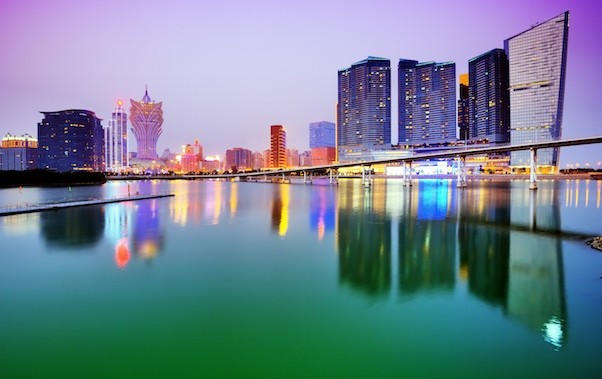
Macau’s six casino concessionaires have seen a double-digit percentage increase year-on-year in their “receipts” – i.e. income – from non-gaming activities in 2018. But the contribution of such activities in relation to their total receipts remained at around 10 percent, according to a report published by the city’s Statistics and Census Service.
The document, released on Friday, is called “Analysis Report of Statistical Indicator System for Moderate Economic Diversification of Macao 2018”.
The phrase “moderate economic diversification” has been used in the city to refer to the public policy aim of expanding the framework of local economic activity beyond a focus on mostly high-stakes casino gambling.
The Macau government analysis defines “non-gaming receipts” as a bracket that covers income generated from guest room sales, retail activities and shop leases, food and beverage operations, and entertainment. This item excludes non-gaming income generated from any third-party entities that operate at the gaming concessionaires’ properties.
According to the report, Macau casino concessionaires’ receipts generated from non-gaming activities amounted to approximately MOP33.43 billion (US$4.15 billion) for 2018, representing a 13.3 percent increase when compared to the MOP29.49 billion reached in 2017.
Receipts from non-gaming activities occupied 9.97 percent of Macau six casino concessionaires’ total receipts in 2018. Such proportion stood at 10 percent in 2017.
The government report also listed what it termed “total non-gaming receipts driven by gaming concessionaires” – an item that combined the gaming firms’ own non-gaming income, and that generated by third-party businesses at their properties. The total non-gaming receipts driven by Macau gaming concessions amounted to MOP80.78 billion in 2018, which is 18.5 percent higher than the MOP68.16 billion reached in 2017.
For the gaming concessionaires, the proportion of floor area of their properties devoted to gaming and non-gaming activities respectively did not show much change throughout the period 2015 to 2018, according to the Macau government report.
By 2018, the total area of facilities owned by the city’s gaming concessionaires was 59.92 million square feet (5.57 million sq metres), a jump from the 48.41 million square feet measured in 2015. But throughout 2015 to 2018, the proportion of the floor area dedicated to gaming business was weighted consistently at about 10 percent, while the floor area serving non-gaming activities occupied slightly above 89 percent of total floor size.
The government statistical report also noted an “entropy index” – that is aimed to gauge the city’s economic diversity. The higher the entropy index value, the less sectoral concentration in the economy; while a lower entropy index value indicates relatively greater concentration regarding a particular sector.
The entropy index of Macau in 2018 stood at 1.83, a reduction from the 1.86 reached in 2017, 1.92 in 2016 and 1.87 in 2015. The highest index value was seen in 2002, when it weighed 2.25, according to the information noted in the report.
Related articles
-
 Tighter Macau bet-credit rules become...
Tighter Macau bet-credit rules become...Apr 12, 2024
-
 Macau had over 3mln visitors in Feb,...
Macau had over 3mln visitors in Feb,...Mar 20, 2024
More news
-
 AI-RFID mix for smart tables gives ops...
AI-RFID mix for smart tables gives ops...Apr 19, 2024
-
 Aristocrat says acquisition of NeoGames...
Aristocrat says acquisition of NeoGames...Apr 19, 2024
Latest News
Apr 19, 2024
The deployment of a “smart table” product – combining the use of radio frequency identification (RFID) technology and cameras gathering data for analysis via artificial intelligence (AI) –...Sign up to our FREE Newsletter
 (Click here for more)
(Click here for more)
Pick of the Day
”Once Solaire North is fully ramped up, and both properties are generating a certain expectation that we have on cash flow… then we will probably launch the Paniman [casino] project”
Enrique Razon
Chairman and chief executive of Bloomberry Resorts
Most Popular
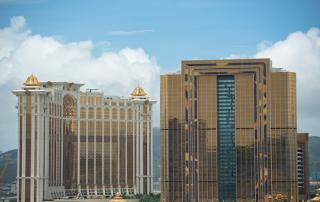 Morgan Stanley trims 2024 forecasts for Galaxy Ent April 17, 2024
Morgan Stanley trims 2024 forecasts for Galaxy Ent April 17, 2024 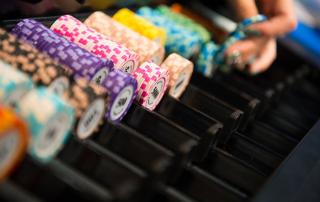 VIP share in Macau reaches 25pct of 1Q GGR: regulator April 16, 2024
VIP share in Macau reaches 25pct of 1Q GGR: regulator April 16, 2024 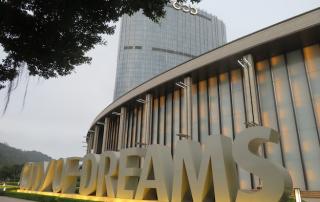 2032 Melco debt a sign for next Macau concessions: CBRE April 18, 2024
2032 Melco debt a sign for next Macau concessions: CBRE April 18, 2024 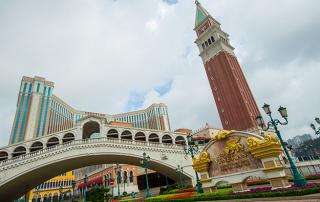 Sands China 1Q adjusted EBITDA down q-o-q amid low hold April 18, 2024
Sands China 1Q adjusted EBITDA down q-o-q amid low hold April 18, 2024 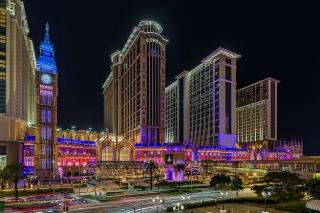 Cotai Arena reopens Nov, Pacifica casino rejig ready Dec:… April 18, 2024
Cotai Arena reopens Nov, Pacifica casino rejig ready Dec:… April 18, 2024






